VCEA 7th Annual Meeting
Meeting Virtually with Digital Support from the Omohundro Institute
January 30th, 2021
10am: Welcome: Karin Wulf, Director, Omohundro Institute
Keynote: A Conversation with Fran Bradford, Deputy Secretary of Education for the
Commonwealth of Virginia about Virginia’s 250th Commemoration of American Independence
11:30-12:30–– Lunch Break Rooms
Choose a room to share conversation and lunch virtually!
- Professor Max Edelson, UVA- “Digital Research Tools”
- Professor Rosemarie Zagarri, GMU- “Research During Covid Times”
- Professor Carolyn Eastman, VCU- “Writing During Covid Times”
- Professor Ryan Smith, VCU- “Material Culture”
- Professor Karin Wulf, OI- “To Write or Not to Write: Twitter, Blogs, Podcasts, and Op-Eds vs Traditional Publications”
12:30-2:00 Concurrent Sessions
A: “Oh the (Digital) Humanitie(s)!”: A Conversation about How to Start, Where to Go for Help, and Why It’s Worth It”
Panelists:
Chris Whitehead (ABD), University of Virginia
Nicole Schroeder (ABD), University of Virginia
Dr. Stephanie Seal Walters, University of Southern Mississippi
Dr. Janine Yorimoto Boldt, Chazen Museum of Art-UW Madison
Dr. Alexi Garrett, Iona College
Description:
We come from DH-heavy institutions in terms of faculty research and projects. However, our History departments are still in the early days of incorporating digital humanities methodologies into graduate training. We therefore had to take it upon ourselves to navigate the exciting – but often overwhelming – fields of DH to learn the software, coding, and other skills relevant to our dissertations. With the current job market demanding DH skills that even the most prominent institutions do not necessarily teach, this roundtable is dedicated to sharing what we learned through our own experiences stumbling into DH as graduate students. We will discuss why we decided to pursue DH methodologies, how we learned relevant techniques, where we turned for mentorship and collaboration, and what possibilities DH offers for interrogating old sources in new ways. All participants will receive a link to DH resources that we have compiled.
B: Accessing the Archives Virtually During the Pandemic
Panelists:
Emma Ito and Amanda Morrell, Library of Virginia
Mark Mulligan, Georgian Papers Programme
Randi Flaherty, University of Virginia Special Collections
Description:
COVID-19 has certainly thrown a wrench into any research plans we might have had for 2020 and 2021. But that doesn’t mean we don’t have access to archival materials! Hear from archivists at the Library of Virginia, the Georgian Papers Programme, and University of Virginia Special Collections about what digital resources they have available for scholars of early America. They will also offer advice on how we can best use archivists remotely for help finding and gaining access to the materials we need.
2:15-3:30 Concurrent Lightning Rounds
Group A:
Nicole Dressler, “not to suffer him to be made subject to person Slavery and Bondage”: Black Convict Transportation and Servitude in the British Atlantic World”
Greta Swain, “Trade Webs and Waterways: The Transatlantic and Potomac Commercial Networks of George Mason III and William Eilbeck, 1700-1765”
Marie Pellissier, “‘No More Errors… than Authenticity Demands’ Food, Authenticity, and Memory in Williamsburg Virginia”
Molly Kerr, “Shopping Stories: Accessing 18th Century Ledgers in the 21st Century”
Kathleen Telling, “‘The Justly Celebrated Mrs. Sophia Hume’: Eighteenth-Century Quaker Expressions of White Southern Womanhood”
Group B:
Rebecca Brenner Graham, “When Mail Arrived on Sunday, 1810-1912”
Kristofer Stinson, “A New Jerusalem: Flavius Josephus in Early America”
Alexander Humes “Fortified Arguments: Fortifications and Spatial Relations in Colonial North America”
Alice King “‘The Tribuit of the Indeans’: The Pequot War and Power in Colonial Connecticut”
Will Tharp, “‘Savage and Bloody Footsteps Through the Valley’: The Wyoming Massacre in the American Imagination”
3:45-4:30pm: Mentor Meetings
(CLOSED SESSION- Zoom links and passwords were emailed to participants)
Mentors:
Rebecca Brannon, JMU-Getting, Keeping, and Thriving at a Job Outside the R1s
Dr. Brannon has been on the faculty at both a regional comprehensive transitioning to R2 status (JMU) and at a teaching-intensive public baccalaureate institution (USC-Aiken). She has chaired a search committee as well as sitting on other hiring committees. Let’s talk about what is the same and what is different from where you are getting your PhD.
Nicole Dressler, WM- Research and the Archives
Dr. Nicole Dressler is a lecturer at the College of William & Mary and has been a recipient of a number of research fellowships in Philadelphia and Germany. Together, we can talk about what to do when you don’t find what you’re looking for in the archives and how to bring your research into the classroom in meaningful ways.
Cassandra Good, Marymount- “Applying for Fellowships”
Dr. Good, assistant professor of history at Marymount University, is currently completing her second book project and has received numerous fellowships supporting her work. What does your first application for a research library fellowship to start your project look like versus an application for support for writing or revising your dissertation? We’ll talk through how to pitch your project at various stages and to different institutions. (RESCHEDULED)
Michael Dickinson, VCU- “Writing History from Below/Finding Hidden Voices”
Dr. Dickinson is currently an assistant professor of history at Virginia Commonwealth University and previously served as the research advisor for the Mellon Scholars Program at the Library Company of Philadelphia. Last year he was a Barra Sabbatical Fellow at University of Pennsylvania’s McNeil Center for Early American Studies. His research examines the lives and struggles of captives in early Atlantic cities. This conference session will serve as a space to discuss and address some of the myriad of research challenges inherent in uncovering the histories of marginalized individuals and populations.

